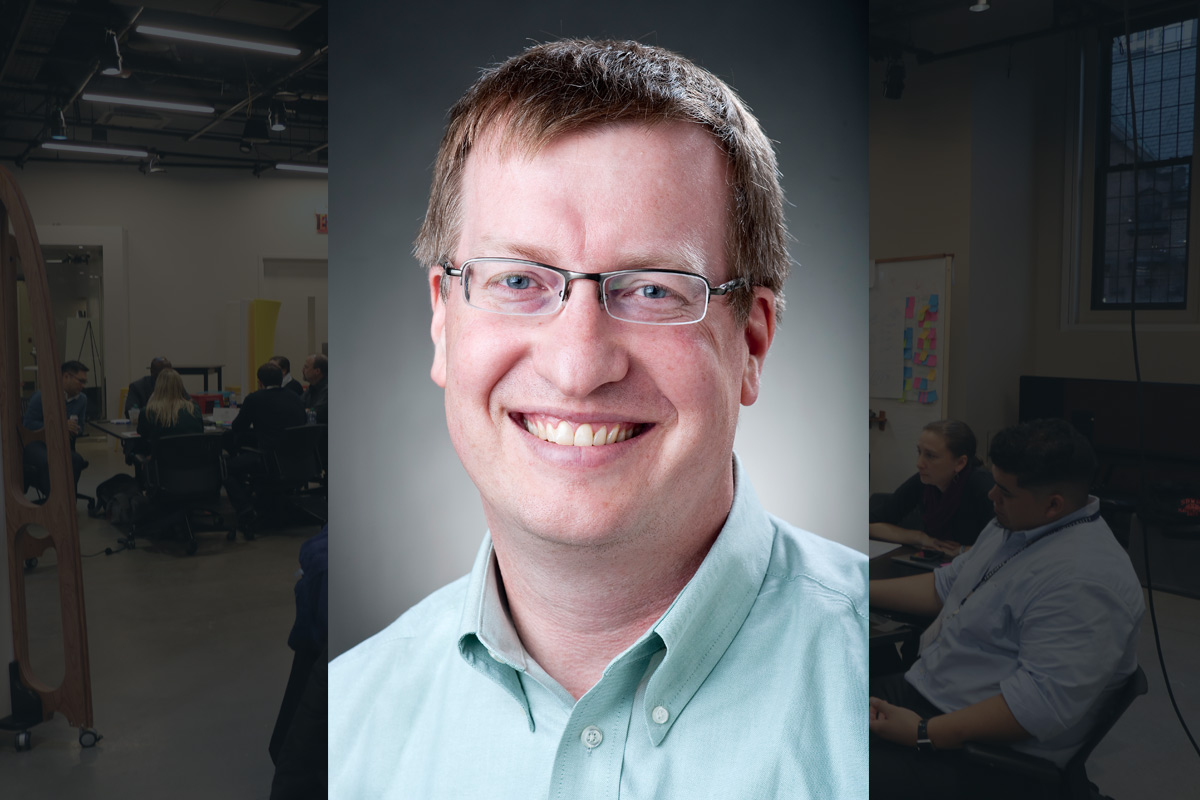The data revolution in education has certainly served policymakers, and it is in the midst of improving support for the work of educators in many schools -- but the coming decade will bring data systems that supports learners as well.
“If we can get these levels working together, we will really have data-driven instruction across all of our schools,” predicted Richard Halverson, Professor and the Associate Dean for Innovation at the University of Wisconsin-Madison School of Education, who keynoted a recent conference at TC on education data, was actually being optimistic.
As described by Halverson – a former high school teacher who is coauthor of Rethinking Education in the Age of Technology: The Digital Revolution and Schooling in American Education (Teachers College Press 2018) -- “In the 1990s, the data that mattered for schools was ‘How are we gonna pay for’ and “How is our football team doing?’”
Then came the standards movement and the passage of the federal No Child Left Behind Act (NCLB), and data became a tool for driving school accountability.
“Early on in NCLB, it was a leaching model – meaning that the data was leached from students who didn’t benefit at all so that it could be pumped out for public accountability purposes. It was used to evaluate educators, but not to support their work.”
Now, though, Halverson said, “educators are asking, how can we get data that we can use – that isn’t just passing through us? And if teachers are creating data systems for improving their work, why not learners, too?”
Halverson forecast three major changes in education during the next 10 years, driven largely by data use.
First, there will be a greater personalization of learning, founded on Deweyan constructivist principles, “with students given more control over how they represent and map their work, but based on teachers’ knowledge of kids’ interests.”
Second, as argued by the media scholar Henry Jenkins and others, education will increasingly emphasize “participatory culture,” characterized by “socially mediated learning.”
“You enter into a participatory culture because you don’t know the answer, and because if you add your expressions to a community, other people will care. So think of Pinterest [the social media and mobile application company], which is an opt-in culture of 49 million users every month. Willie Sutton said he robbed banks because that’s where the money is. Well, if you want to build professional communities, go where the people are.”
And finally, Halverson argued, schools will become hubs to rebuild and repair communities through what he calls “connected learning.”
“Schools can promote student and family health. They can help fight the opioid addiction epidemic and homelessness. There are data systems being piloted outside of schools right now to facilitate vocational and lifelong learning, get kids into jobs and retrain displaced workers. So we’re going to see a shift from summative feedback, which benefits those making judgments about you, to formative feedback, which is information you need as you learn to make better decisions.”
